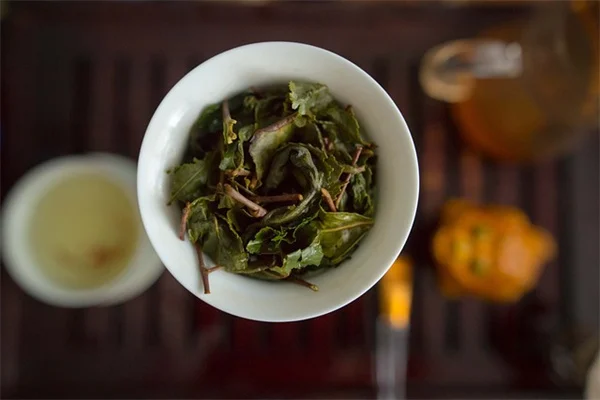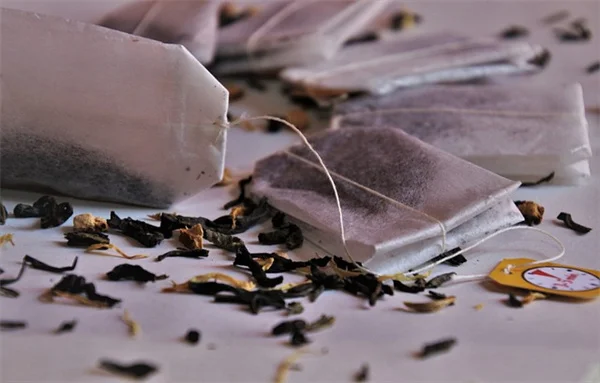Do Peanuts Expire? Discover Their Shelf Life & Storage Secrets!
Do peanuts expire? The answer is yes, but it's not as straightforward as you might think! Peanuts can last quite a while if stored properly, but they do have a shelf life that you should be aware of. Understanding the lifespan of your peanuts is essential to ensure that you enjoy them at their best. Did you know that the way you store peanuts can significantly affect their freshness? Whether you’re using them for snacking, baking, or cooking, knowing how to keep them in top shape can save you from the disappointment of biting into a stale peanut. In this guide, we’ll explore everything you need to know about peanut shelf life, including tips on storage, how to spot bad peanuts, and some creative uses for those that aren’t quite fresh anymore. Let’s dive in and keep your snacks delicious and safe!
E.g. :Can Soy Sauce Expire? Discover the Truth About Soy Sauce Shelf Life!
- 1、Peanut Shelf Life 101: The Ultimate Guide 🥜
- 2、Spotting Bad Peanuts: Your Senses Are Your Best Tools 👃👀👅
- 3、Storage Secrets: Keep Your Peanuts Happy 😊
- 4、In-Shell vs Shelled: The Great Peanut Debate 🤔
- 5、Freezing Peanuts: The Ultimate Preservation Hack ❄️
- 6、Creative Uses for Older Peanuts 🔄
- 7、FAQs
Peanut Shelf Life 101: The Ultimate Guide 🥜
Why Peanut Freshness Matters
Hey there peanut lovers! Let's talk about why understanding peanut shelf life is so important. Did you know Americans eat about 7 pounds of peanuts per person every year? That's a whole lot of snacking! Whether you're munching on them at baseball games or using them in your famous peanut butter cookies, knowing how long they last can save you from some serious snack-time disappointment.
Here's the deal - peanuts contain natural oils that can go rancid over time. When this happens, they develop that awful "old peanut" smell that makes your nose crinkle. Nobody wants that in their trail mix! The good news? With proper storage, you can keep your peanuts fresh and delicious for months.
The Shelf Life Breakdown
Not all peanuts are created equal when it comes to longevity. Check out this handy table comparing different types:
| Peanut Type | Pantry Life | Fridge Life | Freezer Life |
|---|---|---|---|
| Raw in-shell | 9-12 months | 12-18 months | 2+ years |
| Raw shelled | 6-9 months | 12 months | 1-2 years |
| Roasted in-shell | 6 months | 9-12 months | 1-2 years |
| Roasted shelled | 3-6 months | 6-9 months | 1 year |
See how much longer in-shell peanuts last? That protective shell is like nature's perfect packaging! But here's a question: Why do roasted peanuts have a shorter shelf life than raw ones? The answer lies in the roasting process - the heat breaks down some of the natural antioxidants that help preserve the nuts.
Spotting Bad Peanuts: Your Senses Are Your Best Tools 👃👀👅
 Photos provided by pixabay
Photos provided by pixabay
The Sniff Test
Your nose knows! Fresh peanuts should smell slightly sweet and nutty - like walking past a peanut vendor at the ballpark. If they smell like old paint, crayons, or that weird chemistry set you had as a kid, toss them immediately. That rancid odor means the oils have oxidized, and they won't taste good (or be good for you).
Fun fact: Our sense of smell is actually more sensitive to rancidity than any lab test! Evolution gave us this built-in food safety detector - how cool is that?
Visual Red Flags
Give your peanuts a quick once-over before digging in. Here's what to look for:
- Discoloration - Dark spots or an overall dull appearance
- Mold - Fuzzy patches in any color (yes, even "pretty" colors like blue or pink)
- Moisture - Any signs of condensation or stickiness
Ever heard the joke: "Why did the peanut go to the doctor? Because it wasn't feeling very nutty!" Well, if your peanuts look sick, they probably are. Better safe than sorry!
Storage Secrets: Keep Your Peanuts Happy 😊
The Container Conundrum
You wouldn't store your fine china in a paper bag, so why treat your peanuts that way? The right container makes all the difference. Glass jars with airtight lids are my personal favorite - they're like little peanut condos that keep out moisture and odors.
Pro tip: If you're using plastic containers, make sure they're food-grade and BPA-free. Some plastics can actually absorb peanut oils and odors over time, which is just gross.
 Photos provided by pixabay
Photos provided by pixabay
The Sniff Test
Where you store peanuts is just as important as how. Here's the scoop:
Pantry: Great for short-term storage (up to 6 months). Choose a cool, dark spot away from the stove or any heat sources.
Fridge: The sweet spot for most home storage. Extends shelf life by 50-100% and prevents oil rancidity.
Freezer: The peanut time capsule! Perfect for long-term storage or bulk purchases.
Did you know that temperature fluctuations are worse for peanuts than steady warm temperatures? That's why the cabinet above your oven is peanut storage enemy #1!
In-Shell vs Shelled: The Great Peanut Debate 🤔
The Protective Power of Shells
Think of peanut shells like tiny suits of armor. They provide:
- Physical protection from damage
- Natural barrier against oxygen and moisture
- Built-in portion control (cracking shells slows down eating)
But here's a question: Why do some people prefer shelled peanuts despite the shorter shelf life? Convenience is the obvious answer, but there's more to it. Shelled peanuts absorb flavors better when roasting or seasoning, making them ideal for recipes.
When to Choose Shelled
Shelled peanuts shine in these situations:
Cooking/baking: Nobody wants to shell 2 cups of peanuts for cookies!
Quick snacks: Perfect for lunchboxes or when you're in a hurry.
Specialty flavors: Honey roasted, spicy, or other seasoned varieties.
Remember that joke about the peanut who couldn't keep a secret? It was always spilling the beans! Well, shelled peanuts are like that - they expose all their goodness right away.
Freezing Peanuts: The Ultimate Preservation Hack ❄️
 Photos provided by pixabay
Photos provided by pixabay
The Sniff Test
Freezing is like hitting the pause button on peanut aging. The cold temperature:
- Slows down oxidation dramatically
- Prevents insect infestations (no one wants extra protein!)
- Preserves texture and flavor
I once forgot about a bag of peanuts in my freezer for 18 months - they were still perfect when I rediscovered them! That's the power of freezing.
Freezing Do's and Don'ts
For best results:
DO: Use freezer bags or vacuum seal, remove excess air, label with date, portion before freezing
DON'T: Freeze in original paper bags, store near strong-smelling foods, repeatedly thaw and refreeze
Here's a fun experiment: Try freezing small batches with different methods (vacuum sealed vs regular bag) and see which keeps better. You'll be a peanut preservation scientist in no time!
Creative Uses for Older Peanuts 🔄
When They're Not Quite Fresh
Peanuts past their prime for snacking can still shine in:
Cookies and baked goods: The sugar and other ingredients mask slight staleness
Peanut butter: Roasting brings back some flavor, and blending hides texture issues
Bird feeders: Our feathered friends aren't as picky as we are!
Just remember - if they're rancid or moldy, no amount of creativity can save them. When in doubt, throw it out!
The Peanut Butter Rescue
Here's my favorite trick for slightly stale peanuts:
- Spread on baking sheet
- Roast at 350°F for 5-10 minutes
- Let cool, then blend with honey and salt
- Voila! Homemade peanut butter
This works because the roasting revives some of the flavors, and the honey adds sweetness that covers any remaining staleness. Plus, it's way cheaper than store-bought!
Understanding whether do peanuts expire is crucial for any peanut enthusiast. As we've explored, the shelf life of peanuts varies depending on their type and storage conditions. By keeping your peanuts in optimal conditions, you can enjoy their deliciousness for months or even years! Remember, fresh peanuts should have a sweet, nutty aroma, and any signs of rancidity like off smells or discoloration mean it's time to toss them. I encourage you to take these tips to heart when you store your peanuts, whether in the pantry, fridge, or freezer. So, next time you're snacking, take a moment to check the freshness of your peanuts! If you’re interested in learning more about peanut preservation, feel free to leave a comment or share your experiences with peanut storage. Let's keep the peanut love going! 🥜😊
In addition to knowing how to store peanuts, it's fascinating to consider the various ways we can use them even when they start to lose their freshness. For instance, incorporating older peanuts into your baking or making homemade peanut butter can be a great way to ensure nothing goes to waste. Also, with the rising popularity of peanut-based recipes, why not experiment with some creative dishes? You could even host a peanut-themed cooking night with friends! The possibilities are endless, and every peanut has the potential to contribute to something delicious, even if it's past its prime. Don't forget to share your peanut creations with us! 🥜✨
E.g. :Can I use expired peanuts? : r/Cooking
FAQs
How long do peanuts last in the pantry?
The pantry life of peanuts varies depending on the type. For raw in-shell peanuts, you can expect them to last between 9 to 12 months. Raw shelled peanuts typically last around 6 to 9 months. Roasted peanuts have a shorter shelf life, with in-shell varieties lasting about 6 months and shelled ones lasting only 3 to 6 months. So, if you want your peanuts to stay fresh, it's essential to pay attention to where and how you store them!
What are the signs that peanuts have gone bad?
When it comes to spotting bad peanuts, your senses are your best allies. Fresh peanuts should smell sweet and nutty. If they give off a rancid odor that resembles old paint, it’s time to toss them. Additionally, look out for visual signs like discoloration, mold, or moisture. If your peanuts look or smell off, it's better to err on the side of caution and discard them. Remember, safety first!
Can I freeze peanuts to extend their shelf life?
Absolutely! Freezing peanuts is one of the best ways to preserve their freshness. When you freeze peanuts, it slows down oxidation and helps maintain their texture and flavor. Just make sure to use freezer bags or vacuum seal them, remove excess air, and label them with the date. This way, you can enjoy perfectly preserved peanuts even months down the line. It's a simple hack that can really pay off!
What type of container is best for storing peanuts?
The right container can make all the difference in keeping your peanuts fresh. Glass jars with airtight lids are my top choice because they keep out moisture and odors, just like little peanut condos! If you're opting for plastic, ensure they're food-grade and BPA-free to avoid any unwanted absorption of oils. Proper storage will not only prolong the life of your peanuts, but also keep them tasting great!
Can I still use slightly stale peanuts in recipes?
Yes, you can definitely get creative with slightly stale peanuts! While they may not be ideal for snacking, you can use them in cookies or baked goods, where the other ingredients can mask any slight staleness. Making homemade peanut butter is another great option. Roasting the peanuts can revive some flavor before blending them with honey and salt. Just remember, only use peanuts that aren’t rancid or moldy. When in doubt, it's best to throw them out!






